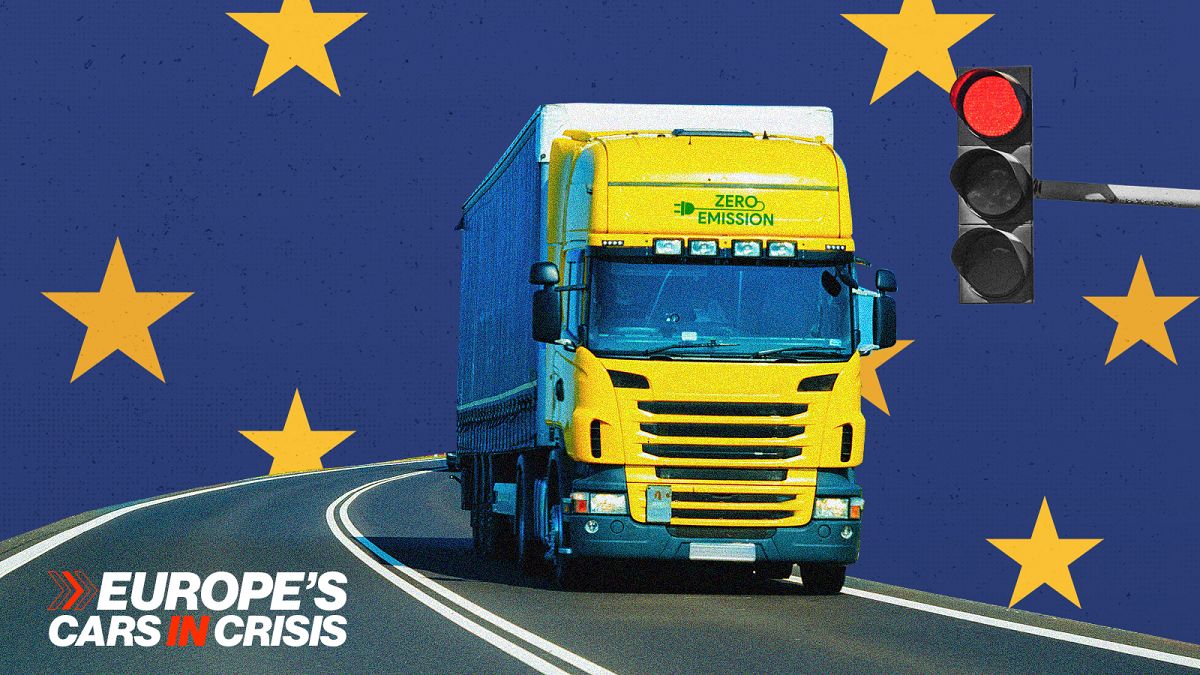By Christian Levin, Chairman of the Commercial Vehicle Board of ACEA and CEO of Traton Group and Scania
Published on
•Updated
The opinions expressed in this article are those of the author and do not represent in any way the editorial position of Euronews.
As Europe debates the future of its automotive industry, one fact must be front and centre: trucks and buses are the backbone of Europe’s economy. Every day, they deliver essential goods and services to hundreds of millions of citizens and businesses. They are also at the heart of our continent’s climate ambitions.
Our industry has already invested billions in zero-emission vehicles (ZEVs). Today, we can offer solutions for all transport needs.
Yet, despite the industry’s readiness, the current regulatory path ahead risks setting us up for failure. The reason is simple: most of the enabling conditions that would make this transition possible are not in place today.
Under the current 2030 CO2 targets, the market share of ZEVs must increase from about 3.5% today to at least 35% in less than five years. That tenfold leap would be ambitious under any circumstances, but it will be impossible without critical levels of infrastructure and coherent policies that really drive the transition.
Adequate grid connections remain challenging, competitive charging prices, CO2-based road user charges, and targeted incentives are either delayed or under immense political pressure. Even essential legislation, such as the Weights & Dimensions Directive, is still pending.
Concrete and urgent action needed from Strategic Dialogue
This is why the European Commission’s Strategic Dialogue must deliver concrete and urgent action for Europe’s commercial vehicle manufacturers. Our sector is already delivering vehicles. But if the other pieces of the puzzle do not fall into place, we will miss the 2030 targets. And let me be clear: This is not a failure of engineering; it’s a failure of policy.
Under Europe’s regulation framework, truck and bus makers are the only actors exposed to draconian non-compliance penalties, even though the success of the transition depends on so many others too: energy providers, infrastructure operators, shippers and transport operators and, most importantly, policymakers.
Without rapid improvements, we risk excessive fines for circumstances beyond our control. That is neither fair nor smart industrial strategy.
We are true global champions and market leaders in most regions worldwide. By stalling the transition, Europe not only risks its climate-neutrality goals, it is also undermining the global leadership of one of its most competitive industries.
We are therefore calling on the European Commission to act now and to:
- Fast-track the review of the HDV CO2 regulation, not in 2027, but now. This early review must make sure the interdependencies across the transport and logistics industry are fully reflected in the regulation.
- Conduct a robust assessment of the state of the enabling conditions for the sector and a realistic rollout across all Member States: from charging and hydrogen infrastructure to grid capacity, ZEV cost parity and targeted demand-side incentives.
- Work with us in dedicated workstreams focused on our industry’s transition, so that solutions can be tailored to the unique challenges we face, and Europe’s truck and bus makers can defend their global leadership.
We are fully committed to driving the climate-neutrality transition and pulling the road transport sector with us. But commitment alone won’t deliver results without supportive policies that match our urgency and realism.
The world is watching whether Europe can lead the way in sustainable transport while safeguarding its competitiveness. Let us prove that we can by making this Strategic Dialogue a turning point.
Christian Levin, is Chairman of the Commercial Vehicle Board of ACEA and CEO of Traton Group and Scania.
Read the full article here


